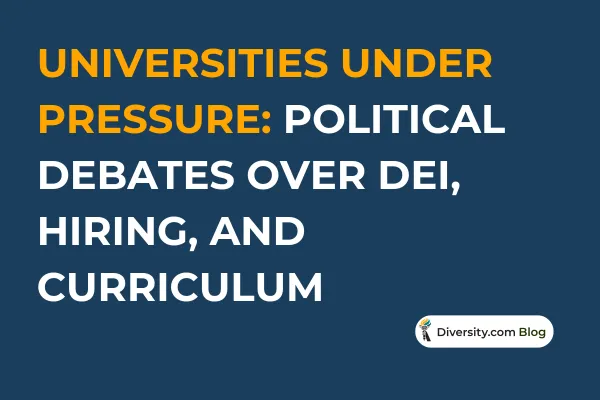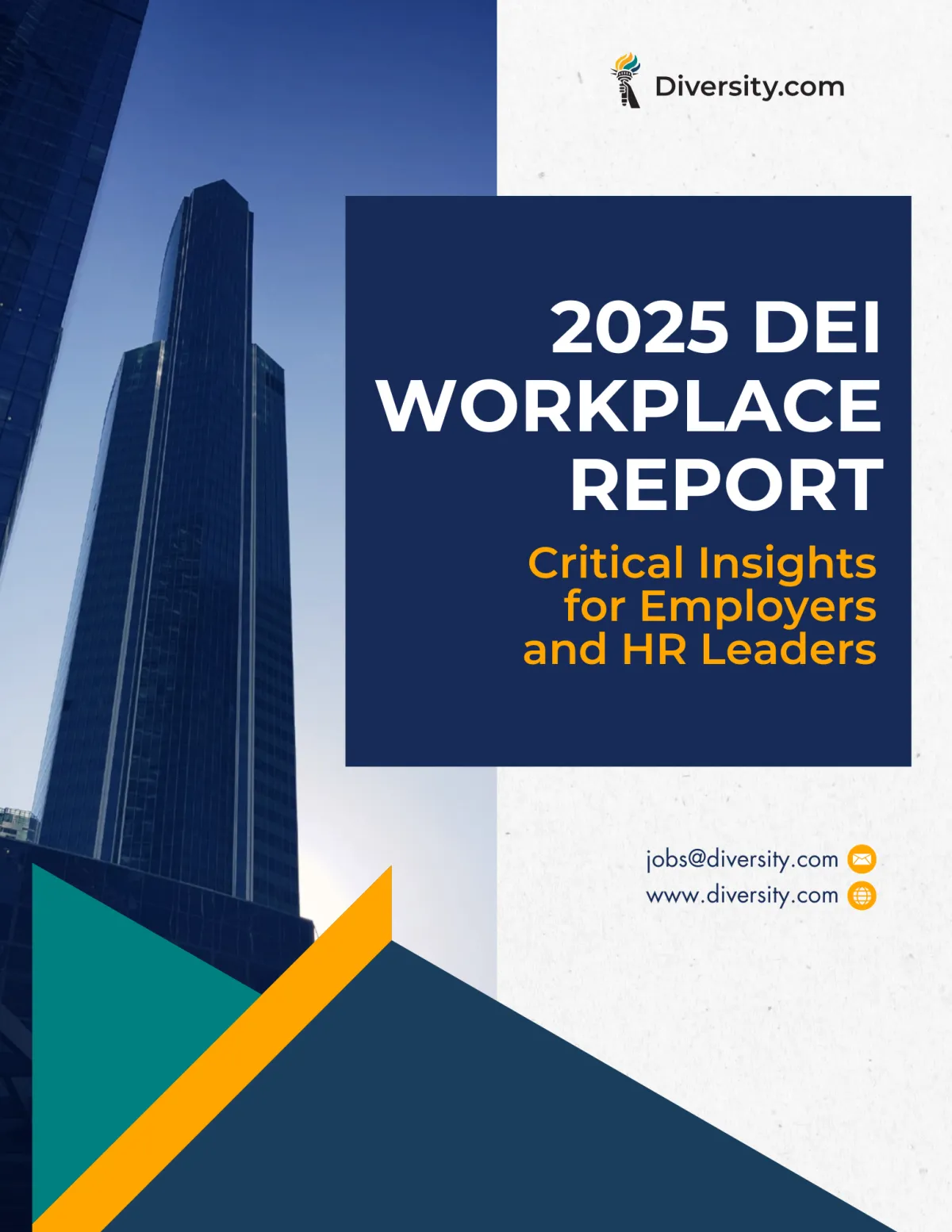
Universities Under Pressure: Political Debates Over DEI, Hiring, and Curriculum
Higher education is no longer just an intellectual space but a political flashpoint.
Across the country, public and private universities alike are being pulled into high-stakes debates about what should be taught, who gets to teach it, and which values an institution is allowed to uphold.
From statehouse floors to national headlines, colleges are under pressure to revise curricula, eliminate diversity programs, and defend hiring decisions against accusations of political bias.
And while the policies may differ by region, the pattern is becoming unmistakable: political pressure on higher education is growing.
State Laws and Curriculum Restrictions in Higher Education
Several states have introduced or passed laws that restrict what universities can teach, especially around topics like race, gender, sexuality, and systemic injustice.
These laws often claim to promote "viewpoint diversity" or fight "indoctrination," but in practice, they limit academic inquiry.
Florida's Stop W.O.K.E. Act banned teaching that could make students feel "guilt" or "anguish" based on race, leading to canceled courses and altered syllabi.
Texas and Oklahoma passed legislation defunding or dissolving university DEI offices entirely.
Other states have proposed laws allowing students to record professors without consent or sue faculty over course content.
Political Influence Over University Hiring and Tenure
In some states, university boards and leadership positions are being filled with politically aligned figures who are expected to steer hiring and tenure in specific directions.
Academic positions are increasingly evaluated not just by scholarship or teaching merit, but by how well they conform to prevailing political values.
This level of scrutiny threatens to erode the independence of faculty hiring and weaken protections for intellectual freedom in the U.S.
How DEI Programs Are Being Dismantled Across Campuses
Diversity, equity, and inclusion programs have become central targets in this movement.
Critics argue that DEI initiatives promote division or political agendas, while advocates point out that these programs are essential for fostering access, belonging, and fairness in academia.
Whether by budget cuts, administrative restrictions, or legislative bans, DEI is being politicized far beyond its original purpose—and students from underrepresented communities are feeling the impact.
University Responses to Political Pressure: Silence or Strength?
Some universities have chosen compliance to avoid further controversy. Others, like Harvard, have publicly defended their autonomy and academic mission.
In his recent letter, Harvard President Alan M. Garber stated:
“No government—regardless of which party is in power—should dictate what private universities can teach, whom they can admit and hire, and which areas of study and inquiry they can pursue.”
Statements like these reinforce the idea that institutions must protect the freedom to think, question, and explore—even under pressure.
The Impact of Political Interference on Educational Equity
Limiting what gets taught or who gets hired doesn’t just affect faculty. It shapes the entire educational experience—and by extension, the opportunities students carry into the workforce.
When universities can't teach honest histories, support diverse perspectives, or offer equitable access to leadership, they reinforce the very inequalities education is supposed to challenge.
And when political forces dictate academic content, it undermines the foundational promise of higher learning: to expand minds, not narrow them.
Conclusion
The politicization of higher education isn't just a passing trend—it's a structural threat to academic freedom, inclusion, and innovation.
Now more than ever, institutions must decide whether to bend to pressure or stand on principle. Because the question isn't just what can be taught—it's whether education will remain a space for truth, complexity, and possibility.
How Diversity.com Supports Universities & Academic Institutions
At Diversity.com, we help universities and academic institutions build diverse, inclusive teams that reflect the communities they serve.
We support university leaders, DEI hiring managers, and faculty job seekers navigating the evolving landscape of inclusion in higher education.
Whether you’re expanding your faculty, increasing leadership diversity, or exploring meaningful academic careers—we provide the tools and insight to help you lead with purpose.
For University Hiring Managers & Academic Leaders:
✔ Create a free employer account — Post jobs, connect with equity-driven faculty and staff, and explore cost-effective hiring plans for long-term success.
✔ Access a diverse talent pool — Reach qualified educators, researchers, and academic leaders from historically underrepresented groups.
✔ Stay informed with expert DEI insights — Read expert insights on faculty diversity, equitable hiring, and academic workplace trends.
For Faculty Job Seekers & Academic Professionals:
✔ Explore inclusive job opportunities — Find faculty and staff roles with institutions committed to equity, innovation, and belonging.
✔ Create a free job seeker account — Get matched with roles aligned to your expertise, values, and professional goals.
✔ Learn what makes a campus inclusive — Discover real insights into university DEI efforts, hiring practices, and leadership culture..
We’re here to support both institutions and individuals in creating stronger, more inclusive academic communities.
Start building your next chapter with Diversity.com
If you have any questions or need assistance, feel free to Contact Us Here. Our dedicated support team is ready to help!
Related Articles
Harvard Defends Academic Freedom: Why It Matters for Diversity and Equity in Higher Education
Over 50 Universities Under Federal Investigation for DEI Programs: What Higher Education Needs to Know
When the Backlash Hits Home: How to Lead Through Politicized DEI Challenges
DEI Job Boards in 2025: What Works, What’s Performative, and What to Avoid
Sources & References:
Florida House Bill 7 (Stop W.O.K.E. Act), 2022.
American Council on Education. (2023). Legislative Tracking of DEI Restrictions.
Garber, A. M. (2025, April). The Promise of American Higher Education. Harvard University. https://www.harvard.edu/president/news/2025/the-promise-of-american-higher-education

